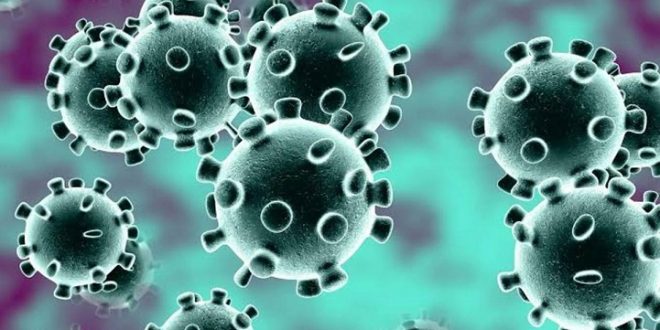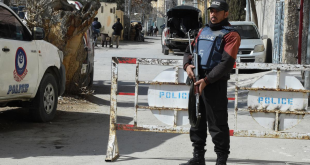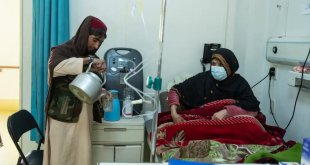Huang Dekai,Liang Daitong & Zhou Yunsong
The novel coronavirus(COVID-19) continues to spread around
the world, and over 100 countries around the world feel the impact of the
coronavirus, with a total of more than 100,000 confirmed cases and more than 3,000
deaths. At present, there are confirmed cases on all six continents except
Antarctica. It means that the epidemic is spreading rapidly around the
world, and no country can stay out of it.
The novel coronavirus has a very
strong ability to spread, and the epidemic still has great uncertainty in the
global development situation. World Health Organization (WHO) has raised
the risk level of global COVID-19 transmission and impact to “very
high”, meaning a global epidemic is taking place. According to the
current development trend, the new crown epidemic has not reached the highest
point, it is still spreading, and the negative impact and harm continue to
expand. More countries and regions will be affected by the new crown
epidemic.
Previously, due to the lack of
understanding of the novel coronavirus in some countries and limited early
prevention and control measures,the novel coronavirus showed a momentum of
rapid growth around the world. In just one week, the whole of Europe
fell. And take this as a stronghold and spread to the surrounding
areas. The global alarm is sounded, and no country can be left alone in
the face of the novel coronavirus.
With the deepening of globalization,
global problems have emerged one after another, in which the global health
problems characterized by infectious diseases have brought great challenges to
mankind. A large number of immigrants settle down all over the world, and
economic capital and cultural capital flow with them. As their inevitable
negative effect, various diseases are widely spread.
In this regard, countries,
non-governmental organizations and other actors of the international community
carry out assistance, cooperation and exchange actions around health
governance, which constitute global health diplomacy, carry out global
governance in the field of health, and jointly deal with the challenges faced
by mankind.
First of all, it is urgent for all
countries to fully understand the danger of this epidemic and take necessary
prevention and control measures according to their own national
conditions. Although in the face of prevention and control of the novel
coronavirus, basic prevention and control measures can be taken. But at
present, the development status of the novel coronavirus in different countries
in the world is not the same, and the cases of infection and mortality are also
different. And there are also differences in the region, sanitary
conditions and defensive measures of different countries. Therefore,
countries should proceed from their own national conditions, take appropriate
travel restrictions and isolation measures, strengthen the publicity of
epidemic prevention knowledge, improve the prevention and control level of
medical institutions and mobilize the resources of the whole
society. Through early positive measures, the spread of the virus can be
stopped and lives can be saved.
Secondly, give full play to the role
of the World Health Organization (WHO)
in the field of global public health emergency response.As the authority
of global disease prevention, the World Health Organization (WHO) has played an
important role in capturing, forecasting and controlling global disease
transmission and coordinating the joint response of the international
community. World Health Organization (WHO) provides evidence-based
guidance to help countries assess and manage risks and make decisions, promote
the prevention and elimination of epidemics, guide medical research on new
crown epidemics, assist countries in strengthening the novel coronavirus
initiatives, and provide technical assistance. We will increase epidemic
monitoring and information sharing, build an efficient patient treatment
system, block the domestic and international spread of the virus, and at the
same time strengthen international cooperation, carry out experience exchange
and scientific research cooperation, coordinate port control, and strengthen
inspection and quarantine and other measures. work together to build a global
network of joint prevention and control. Until the COVID-19 virus is
eliminated.
Finally, work together to deal with
the novel coronavirus. Under the trend of globalization, the prevention
and control of infectious diseases can not be solved independently by a single
national government, which involves multilateral and multi-level governance
characteristics. The prevention and control system with traditional countries
as the main body has been severely challenged. At the same time, the
epidemic does not wait for people, and any lag, laziness, wait-and-see,
short-sightedness and prejudice may bring irreparable consequences. In the
face of the rapid epidemic, the international community especially needs to
implement unity and cooperation and join hands to deal with the
epidemic. In a global game of chess, all countries should take action to
unite the joint efforts of global prevention and control and build a joint prevention
and control system, so as to curb the spread of the epidemic as soon as
possible and defeat the epidemic.
The virus knows no national
boundaries, and cooperation is the key. The outbreak of the COVID-19
epidemic is a very severe test for countries all over the world. In the
closely linked “global village”, the destinies of all countries in
the world are closely linked. International forces work together to deal
with COVID-19, and strengthening global cooperation is the key to fighting the
epidemic. Since the outbreak of the epidemic, China has taken very strict,
comprehensive and thorough prevention and control measures, and has made
positive contributions to preventing the spread of the epidemic
worldwide. We are willing to respond hand in hand with the rest of the
world and jointly safeguard regional and world public health security.
(Huang Dekai,The Scholar of Sichuan Police College,Liang Daitong&Zhou Yunsong,The Scholars of Yunnan University)
 Afghanistan Times
Afghanistan Times




